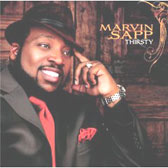 Growing up Christian means growing up conflicted about popular music. Different families and churches handle it in various ways, but it’s generally true that all secular music (What Everyone Listens To) is seen as either potentially dangerous or completely taboo, and all Christian music is God-ordained, having been baptized and all that.
Growing up Christian means growing up conflicted about popular music. Different families and churches handle it in various ways, but it’s generally true that all secular music (What Everyone Listens To) is seen as either potentially dangerous or completely taboo, and all Christian music is God-ordained, having been baptized and all that.
For many Christian adolescents and young adults, there’s a two-fold problem with this dynamic of their religious culture:
1. Christian music is usually not as good, and definitely not as hip, as secular music.
2. Some secular bands sing Christian messages, hail from Christian backgrounds, or occasionally sport Christian t-shirts. (“The record label says ‘EMI,’ but they sure do seem to be singing about Jesus. And I hear their drummer goes to church!”)
The issue of what’s Christian and what’s not is, therefore, complicated. It was easier when I was a kid, because secular labels were secular labels (with their Cure and their George Michael) and Christian labels were Christian labels (with their Amy Grant and their Michael W. Smith). But even then Stryper came along and confused things, and Amy Grant went all VH-1.
Today things are murkier, since most Christian labels are owned by major mainstream labels, and artists from Common to Arcade Fire have compelling religious undertones, and the Switchfoots and Carrie Underwoods of the world make any kind of doctrinal distinction in the pop landscape seem silly. Is it okay for a Christian band to create vague love songs that can apply to God as well as to human lovers? If a Christian band has a mainstream hit, has it sold out? What about all the sexy pop singers–Britney, Jessica, and virtually every American Idol contestant–who were raised in church? Are they somehow still sufficiently Christian?
Burn or Burn is here to help.
From time to time, we will review a new album or video by a musical act that falls into this precarious borderland between Christian and secular. We’ll ascertain the meaning of the band’s message, and render a verdict: Either “burn” the album in the virtual bonfire, never to be listened to again for want of clear religious value, or “burn” the album onto multiple CDs and MP3 players and share with all your friends. (We’ll have two writers weigh in for one side each when it’s a major band or very important album. That means you, R.E.M., so hurry it up.)
Next up: Yours truly takes on the curious case of Mute Math.
Followed by: Nicole Symmonds on Common‘s latest release.


